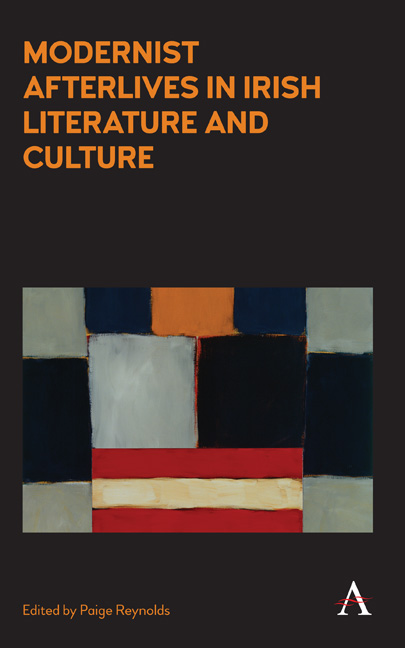Afterword: The Poetics of Perpetuation
Published online by Cambridge University Press: 22 July 2017
Summary
The ‘artist's job’, claimed John Banville, ‘is not to say the thing itself, but to speak about it. Narrative is all’. He adds that ‘[g] reatness in this conception of art is achieved not through form, but content’. Two rather different things are being proposed here. Initially, Banville appears to back obliquity: be circuitous, he advises, speak ‘about’ something, rather than give too much away by addressing head on ‘the thing itself ’. However, he then prioritizes substance over style in ways that, on the surface, steer him away from modernism, or at least from that particular conception of modernist writing that assumes form and content are indissolubly linked. And the plot thickens. More recently, Banville has been very much for the idea of excavating experience ‘through form’, claiming that while ‘[l]iterary art cannot hope to express’ the complex ‘congeries of selves’ that make up one's personhood, ‘it can, by the power of style, which is the imagination in action, set up a parallel complexity which, as by magic, gives a sufficiently convincing illusion of lifelikeness’. It is a quintessentially Banvillian sentence, becoming at once accretive and sinuous without marring its own euphony. But it also reveals something fruitfully discrepant about Banville's own position on modernist aesthetics. Writers change their minds, of course, as Zadie Smith's career makes clear. In Banville's case, though, shifting standpoints matter because his work is a key port of call for discussions about modernism's presence in contemporary Irish fiction. For him to admit that ‘I don't know if there's much to do after Nabokov and Proust, but one does one's little bit’, sounds deceptively modest, especially in light of how he has enabled us – rather like J. M. Coetzee has done for scholars of postcolonial and world Anglophone fiction – to rethink the formidable yet still-generative influence of the likes of Beckett, James and Kafka. Banville thereby speaks, contradictions and all, to that broader sense in contemporary Irish culture, as Paige Reynolds describes it, of ‘the enduring potentiality of modernist forms, themes and practices’.
Proof of this potentiality can be found in Banville's The Sea, winner of the 2005 Man Booker Prize. At first glance, formal audacity does indeed seem to take second place to the novel's intrigues of retrospection.
- Type
- Chapter
- Information
- Modernist Afterlives in Irish Literature and Culture , pp. 175 - 182Publisher: Anthem PressPrint publication year: 2016



